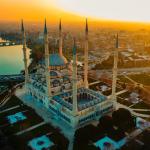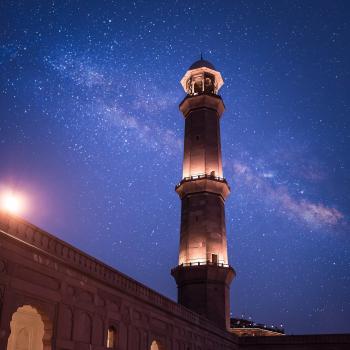
Regret is one of the most painful feelings to experience because of the knowledge that we brought it upon ourselves. But it also has a positive side, which is that in many cases, it can be prevented. Our choices are within our own control.
They say that hindsight is 20/20. However, there is actually an easy way to attain that 20/20 vision right now, without having to look back someday to attain it. The key is to try to look at our lives as we will 20, 30, or 40 years later (assuming we even have that many years left!). But in order for this to work, we have to be 100% honest with ourselves. I’ll use the age of 80 for this example. At the age of 80, how will I feel about the way that I am living my life right now?
By 80, most people are not nearly as healthy and energetic as they once were. If I have good health right now, how will I feel at the age of 80 about the way that I’m using it at this point in time? Did I make the most of my energy and strength to worship Allah (swt) and serve His creation, or did I let it go to waste with useless or self-serving activities? Will I wish I could go back and do it over?
What about the way I am using my time? At 80, I may have a lot of free time but not the ability to use it as I once could have. Perhaps my loved ones would have passed away by then, and I’ve lost the chance to spend more time with them. Maybe I have time to pray salah now, but my guilt weighs me down as I wonder what excuse I will try to make in front of Allah about why I did not offer all 5 prayers for so many years of my life. At the age of 80, will I look back on the inappropriate shows or other sexual material that I watched in my youth and wish I could erase them from my book of deeds?
Our bodies also change as we get older. When a person is 80, they do not have the same physical form that they did before. Most likely, they are not turning heads due to their beauty. When I am 80, will I really look back on my younger years and wish I had received more shallow, fleeting attention from people by dressing in a more sexually appealing way or following fashion trends that have long passed? Will those people benefit me in the Afterlife when I am in front of my Lord, desperately searching for a way to explain why I did not simply cover up more or act more modestly? When I am old and frail, with a deeply wrinkled face and only half of my hair left in wispy gray strands, will I wish I could go back and cover myself while it counted? While it was actually considered to be a sacrifice for the sake of Allah (swt)?
What about my wealth? Maybe my retirement did not go as I had planned. Perhaps at the age of 80, I do not have the amount of wealth that I had once thought I would in my old age. Will I look back and realize that I had kept delaying paying back my debts or giving charity, always thinking that I would do it when I am older? At the age of 80, will I really care how big and impressive my house used to be, when the people who were impressed by it are long gone? Will I care about how comfortable I was, if that comfort left me buried in sins? And when I am standing before Allah on the Day of Judgment, how will I explain why I took out a mortgage or other interest-based loans, simply for the sake of things which I honestly could have done without? Something which I have left behind in the dunya and is of no benefit to me now.
These are only some examples. Everyone has their own weaknesses, and it is up to us to recognize them and work on them while we can. Because at 80, when we are about to go back to our Creator, the fact that we indulged in our desires or gave in to the pressures of the dunya rather than sacrificing for Allah may be our biggest regret. And a blessing that we have been given right now is, we still have time to change that. Our ending doesn’t have to be filled with regrets—but only if we commit to that change today, not tomorrow. Tomorrow isn’t guaranteed for anyone. 80 was not promised to you and me.
“Then when the Horn is blown, there will be no relationship among them that Day, nor will they ask about one another.” [Qur’an 23:101]
“They will be made to see each other. The wrongdoer will wish that he could ransom himself from the punishment of that Day by (sacrificing) his children, and his wife and his brother, and his family who had stood by him, and whoever is on the earth, altogether, (so) then it could save him.” [Qur’an 70:11-14]
“O you who have believed, let not your wealth and your children divert you from remembrance of Allah. And whoever does that—then those are the losers.” [Qur’an 63:9]
Follow Mostly Muslim on Facebook HERE.
Want your voice to be heard? JOIN OUR TEAM or send your guest submission to MostlyMuslim@gmail.com! Visit the “Contribute to MM” page for more details.















